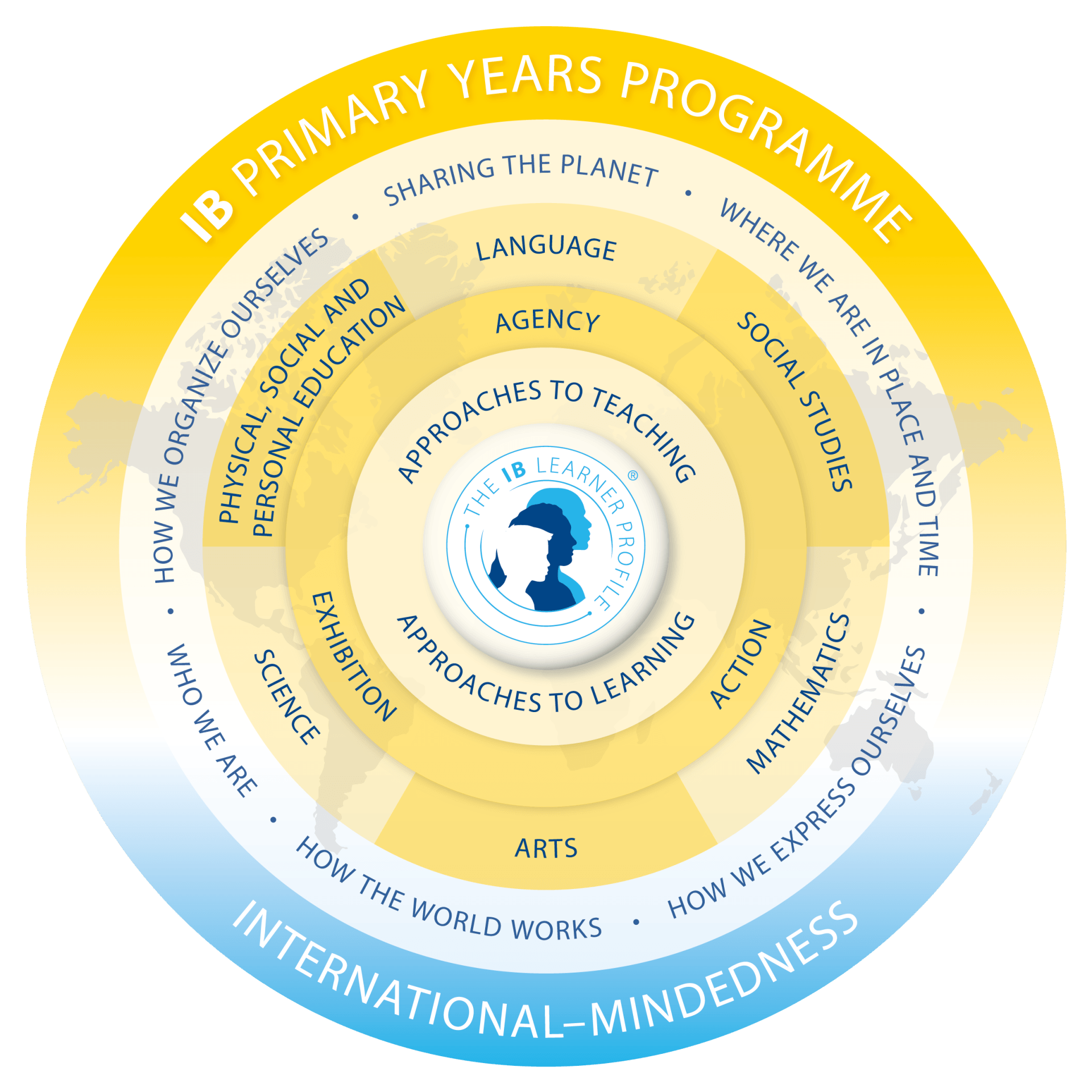The International Baccalaureate Primary Years Programme (PYP)

- Knowledge
The inquiry program is organized around six transdisciplinary themes of global significance and learning about these themes underpins the program. Students address all six themes each year (six units of inquiry).
The themes are:
Who We Are
Where We Are in Place and Time
How We Express Ourselves
How the World Works
How We Organise Ourselves
Sharing the Planet
Through these themes, students gain knowledge in six subject domains:
Language
Mathematics
Science and Technology
Social Studies
Personal, Social and Physical Education
Arts
The program identifies a body of knowledge which is designed to be engaging, relevant, challenging and significant for students and which is closely aligned to IB curriculum documents.
- Concepts
Seven fundamental concepts, expressed as key questions, propel the process of inquiry and help to encourage a transdisciplinary perspective. These concepts drive the units of inquiry which teachers and students co-create.
These concepts are:
Form
Function
Causation
Change
Connection
Perspective
Responsibility
- Skills (ATL)
Approaches to Teaching and Learning:
The skills acquired in the process of structured inquiry are thinking, communication, social, research and self management skills. The specific skills that align and are relevant to the content of each unit of inquiry are taught as part of that unit.
These skills are aligned with our Global Competencies which are part of all out teaching and learning.
- Action
Students are encouraged to reflect, to make informed choices and to take action that will help their peers, families, school and the wider community.
Action can include making a difference through:
Lifestyle Choices
Social Entrepreneurship
Advocacy
Participation
Social Justice
- Learner Profile
The aim of all IB programmes is to develop internationally minded people who, recognizing their common humanity and shared guardianship of the planet, help to create a better and more peaceful world.
IB Learners are:
Inquirers
Knowledgeable
Thinkers
Communicators
Principled
Open-Minded
Caring
Risk-Takers
Balanced
Reflective


